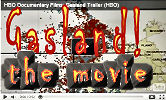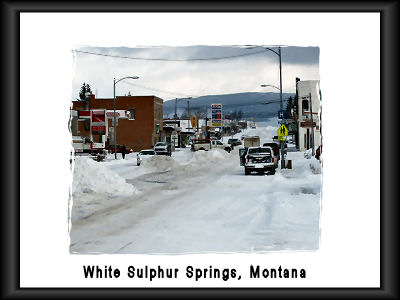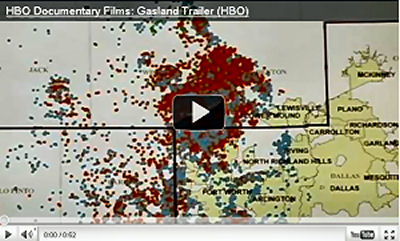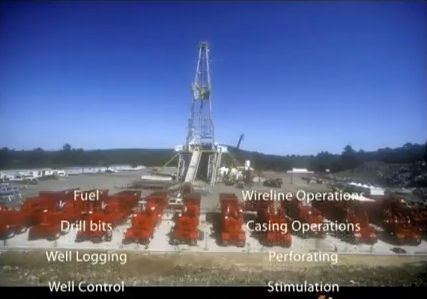 France is about to debate a law to totally ban fracking for gas. Australia has allowed the practice with problems quickly developing. Mexico has no defenses. The United States is deeply affected. "Fracking" was developed by Halliburton, the second largest oilfield services corporation in the world. The term comes from the extraction method of hydraulic fracturing of shale beds to access "unconventional gas" i.e. gas that comes out of wells other than classic oil-wells. Under President Bush, the fracking industry was exempted from environmental laws, including clean water protection. As many of us have come to understand, when you take away environmental protection, you take away almost all human rights to object to big business, even if citizens lives are obviously threatened. We also mention the Australian film made by Four Corners investigating the impacts of the industry in Australia.
France is about to debate a law to totally ban fracking for gas. Australia has allowed the practice with problems quickly developing. Mexico has no defenses. The United States is deeply affected. "Fracking" was developed by Halliburton, the second largest oilfield services corporation in the world. The term comes from the extraction method of hydraulic fracturing of shale beds to access "unconventional gas" i.e. gas that comes out of wells other than classic oil-wells. Under President Bush, the fracking industry was exempted from environmental laws, including clean water protection. As many of us have come to understand, when you take away environmental protection, you take away almost all human rights to object to big business, even if citizens lives are obviously threatened. We also mention the Australian film made by Four Corners investigating the impacts of the industry in Australia. 
France is about to debate a law to totally ban fracking for gas. Australia has allowed the practice with problems quickly developing. Mexico has no defenses. The United States is deeply affected. "Fracking" was developed by Halliburton, the second largest oilfield services corporation in the world. The term comes from the extraction method of hydraulic fracturing of shale beds to access "unconventional gas" i.e. gas that comes out of wells other than classic oil-wells. Under President Bush, the fracking industry was exempted from environmental laws, including clean water protection. As many of us have come to understand, when you take away environmental protection, you take away almost all human rights to object to big business, even if citizens lives and livelihoods, notably through their clean water supply, are obviously threatened. We also mention the Australian film made by Four Corners investigating the impacts of the industry in Australia.


Winter is cold in America
Years ago I spent a couple of months travelling between Colorado and White Sulphur Springs, Montana, in the US with a friend in the petroleum business, who looking into purchasing mineral rights on behalf of some organisations. It was the middle of winter and a blizzard accompanied us the whole way. Our vehicle, an old Lincoln Continental, developed defective wiring so the heaters and de-misters didn't work and the windows wouldn't wind down. As we left Cheyanne, Wyoming, we were wearing ski outfits and using an icescraper on the inside of the windows, wondering just how long we could survive this. When we got to the town of White Sulphur Springs, the main street looked like a bob-sleigh course. The town lacked the money to clear the ice and the only warm place, as I recollect, was under the motel, in a glaucous grotto whence issued the sulphurous springs which apparently gave the town its name.
From this picture I found on the internet, I see that it hasn't changed all that much, except that they are now fracking for gas in Montana.
Why should I mention this?
Well, perhaps to give you an idea of how cold it gets in North America in winter, and just what film-activists like Josh Fox are up against from the general public as well as those who live in warm climates and own shares in gas exploration. Further down we mention the Australian investigation of this industry on Four Corners: See "The Gas Rush," 21 February 2011.

Gaslands, the movie
Candobetter.net is a website for reform in democracy, environment, population, land use planning and energy policy. These topics go together naturally, but few single productions bring them together as effectively as Gaslands, a movie made and lived by Josh Fox (no relation to Fox-news, of course!)
Watch this movie and, if you still believe in benign government and that capitalism is the same thing as democracy, please write up your case to amaze us here.
Fracking democracy
It is really hard to do a review of Gaslands, because even if it were a terrible production, the material raises it to magnificent and frightening heights. The maker of this movie, Josh Fox, was offered a paltry $100,000 for the woods and fields he has lived in all his life, in exchange for mineral exploration rights.
He loved his landscape, which he had grown up with, and he had heard some rumours that fracking sometimes went wrong and cracked water table rock layers, releasing into the water, as well as natural gas and other petroleum by-products, some heavy-duty chemicals used to make water more slippery.
Here is an mp3 about Fracking Fracking: Implications for Human and Environmental Health, Nov 9, 2010 More information here.
Gaslands, the industry
Energy in Depth, "Debunking Gasland," is an industry group site containing a response to the movie, Gaslands.
 Click here to see a movie which the industry has made in response to the film. The pro-fracking campaign is just as fear-driven as the anti-gas fracking campaign.
Click here to see a movie which the industry has made in response to the film. The pro-fracking campaign is just as fear-driven as the anti-gas fracking campaign.
Unfortunately the industry insists, oilily, that if we want our lifestyles to continue, we have to find more and more fuel to allow our economies to continue to grow. "The world's dependency on oil and gas is a given. Without these fuels, life as we know it, would grind to a stop. " They show a snowbound house with cheery lighted windows, a masked medical team at a patient's bed, a plane taking off, and traffic-laden highways. There is no acknowledgement of the benefits of simplicity, the wholesomeness of nature, the disbenefits of consumerism and growth, or the impact on democracy of capitalism gone mad. This film, however, has a nice animated model of how to drill a well and what fracking entails. The model idealises and simplifies the situation, but it educates on the engineering.
The page associated with this movie is called "Debunking Gasland" and comes from a chapter entitled, "The Energy you need, the Facts you demand." Under, "Who we are," you can read that,
America’s natural gas and oil producers – the majority of which are small, independent businesses with less than 12 employees- are committed to strengthening America through the safe, responsible and environmentally-friendly development of domestic energy resources. Together, we’re working to keep energy affordable here at home, creating new jobs and minimizing our dangerous dependence on foreign oil.
Thanks to new innovations and the hard work of the hundreds of thousands of Americans in the petroleum industry, we’re doing just that. Spread throughout small towns and communities across the country, our companies keep local economies moving by providing goods and generating tax revenues through lease payments and production royalties"
Why the unconventional gas-rush?
Petroleum depletion trends have galvanised governments and industry to find new reservoir sources of fuel in order to maintain our crazy growth economies. This has placed pressure on environmental standards and laws. Under President Bush environmental protection was apparently shunted aside in order to allow brutal technologies to be used to get coal from sites previously abandoned as too difficult or unrewarding or damaging to the environment, and oil from arctic wilderness. These are desperate and predictable measures. Tarsands - once ignored due to their extremely low return on energy invested and the very high pollution involved - are also now being massively exploited in Canada. As we know deep-sea drilling for oil, with all its risks, resulted in - among other tragedies - the Deepwater Horizon oil-well blow-out of 2010 in the gulf of Mexico.
Fracking and concerns about water supplies and safety
Fracking gets natural gas from shale formations at very deep underground levels. People are very worried that, whilst shattering these shale formations, underground water tables will also be shattered, ground around the wells will be polluted, and wide open landscapes will take on the appearance of outdoor factories. The industry insists that the shale formations are much lower than the water tables humans access, but there have been several cases where water tables have been proven to have been contaminated. The fracking industry uses huge amounts of fluid - usually water, which is then largely lost to the water cycle. The water is also 'slicked' using various chemicals, many of which are poisonous. (The industry explanation cited above says that many of these chemicals are used in household products, which is true, but these are not generally poured down drinking wells in large quantities.) The slicked water is forced at huge pressures down vertical pipes and then via pipes which penetrate laterally. The aim is to crack and break up the shale formations enough to release gas in large quantities from its multi-chambered underground stores. In Gaslands it has been suggested that, if completely developed, the huge Marcellus shale formation in the United states, under the current very poorly regulated, chaotically individual and uncoordinated system of drilling, could permit as many as 400,000 new wells. This might endanger the supply of water to New York, which would be catastrophic.
It is of concern that similar projects are proceeding in Australia and ABC Australia's 4Corners recently did a very good documentary on this problem. See "The Gas Rush," 21 February 2011. (Video still available on line.) Shown in this documentary was a case of serious contamination of the underground artesian basin, which is Australia's most massive and ancient naturally stored water-source and the main source of water to many inland farmers in the Eastern states.
Fracking is going to be a problem for any country with shale-oil as long as big transnationals make rules for the rest of us. One such country is Mexico, and here is an interesting article, "Fracking in the Four Corners."
France close to banning Fracking on its territories
Proposed law
Clause 1:
In applying the precautionary principle elaborated in Clause 5 of the Environmental Charter, exploration and exploitation of unconventional hydrocarbon liquids or gases, using vertical and horizontal drills, followed by hydraulic fracturing of rock, is forbidden on National [French] territory.
Article 1er
En application du principe de précaution prévu à l’article 5 de la Charte de l’environnement, l’exploration et l’exploitation des mines d’hydrocarbures liquides ou gazeux non conventionnels, par des forages verticaux comme par des forages horizontaux suivis de fracturation hydraulique de la roche, sont interdites sur le territoire national.
Clause 2:
Exclusive exploration licences to mine unconventional hydrocarbon liquids or gases are now revoked.
Article 2
Les permis exclusifs de recherches de mines d’hydrocarbures liquides ou gazeux non conventionnels sont abrogés.
One of the French ministers involved in drafting this law originally permitted early exploration for fracking. He says that he failed to adequately research the practice and its consequences at the time and is now keen to rectify his mistake.
Why fracking 'Democracy'?
When I first looked into this matter, I thought that it would take me some time to understand the technology involved and the truth of the complaints against it. But what was not hard to see was that the industry could not proceed as it does if there were any democratic regulation in the interests of citizens. The rate and amount of fracking going on in the United States, and the trends in Australia, go on against major and constant protest in countries which lack adequate processes to allow citizens to decide what happens to their country. Whilst these weaknesses in the Anglophone democratic systems have been apparent for some time, the activities of the fracking industry are so obvious and so flagrant, that they actually dramatise our need for entirely new systems of government, with real local powers.


 Seismic testing to look for petroleum has begun in protected marine areas off the coast of Western Australia after permits were quietly granted by the Abbott government. What sort of 'protected" areas would allow the mining of petroleum? It's protected on paper no more! Nothing is protected when it comes to the power of international mining companies, and their quest for profit and energy.
Seismic testing to look for petroleum has begun in protected marine areas off the coast of Western Australia after permits were quietly granted by the Abbott government. What sort of 'protected" areas would allow the mining of petroleum? It's protected on paper no more! Nothing is protected when it comes to the power of international mining companies, and their quest for profit and energy. France is about to debate a law to totally ban fracking for gas. Australia has allowed the practice with problems quickly developing. Mexico has no defenses. The United States is deeply affected. "Fracking" was developed by Halliburton, the second largest oilfield services corporation in the world. The term comes from the extraction method of hydraulic fracturing of shale beds to access "unconventional gas" i.e. gas that comes out of wells other than classic oil-wells. Under President Bush, the fracking industry was exempted from environmental laws, including clean water protection. As many of us have come to understand, when you take away environmental protection, you take away almost all human rights to object to big business, even if citizens lives are obviously threatened. We also mention the Australian film made by Four Corners investigating the impacts of the industry in Australia.
France is about to debate a law to totally ban fracking for gas. Australia has allowed the practice with problems quickly developing. Mexico has no defenses. The United States is deeply affected. "Fracking" was developed by Halliburton, the second largest oilfield services corporation in the world. The term comes from the extraction method of hydraulic fracturing of shale beds to access "unconventional gas" i.e. gas that comes out of wells other than classic oil-wells. Under President Bush, the fracking industry was exempted from environmental laws, including clean water protection. As many of us have come to understand, when you take away environmental protection, you take away almost all human rights to object to big business, even if citizens lives are obviously threatened. We also mention the Australian film made by Four Corners investigating the impacts of the industry in Australia. 


 Click here to see a movie which the industry has made in response to the film.
Click here to see a movie which the industry has made in response to the film.
Recent comments